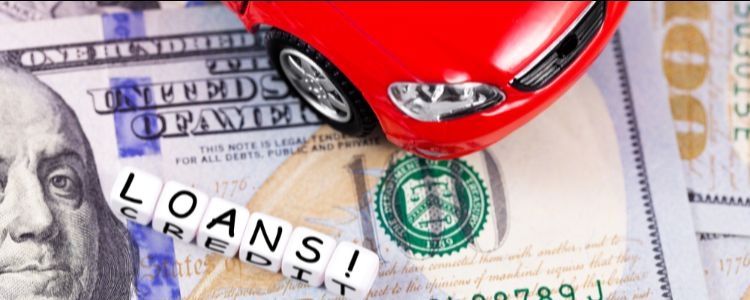Before you lose control of a car loan that you're struggling to afford, refinancing may be able to help. However, not every borrower or loan situation qualifies for refinancing. Let's take a look at some things that could stand in your way.
7 Roadblocks to Refinancing Your Car Loan
There are a lot of reasons why you might want to refinance, but you first have to qualify. Here are a few things that might be standing in your way of refinancing:
- Your loan is too new. If you haven't had your loan for at least a year, lenders may not even consider drawing up a new auto loan contract with you.
- Your credit score is bad or hasn’t improved. You don't necessarily need good credit to refinance if you originally took out a bad credit car loan, but your credit score has to have improved. If your loan was started with good credit that's now lower than before, don't expect to be rolling in refinancing deals, either.
- You're behind on your payments. If you're not current on your loan, you're not going to be considered for the process. Think of refinancing as a reward for working hard to get through the rate and term you didn't want.
- You owe too much money. Refinancing replaces your existing contract with a new loan on the same vehicle. However, if you initially paid too much money for a car, a lender isn't likely to want to shell out a huge chunk of change for an asset that isn't worth that much.
- You owe too little on your loan. If you're almost done paying off your loan, a lender may not want to take on the risk of refinancing you. There's no reward in refinancing if you're lowering your interest rate or extending your loan term just so you can pay off the final few hundred dollars of your loan.
- Your vehicle doesn't meet lender standards. Not all cars, trucks, or SUVs qualify for refinancing. Most lenders have a set age range and mileage limitation that vehicles have to meet. Typically, cars can't be more than 10 years old or have more than 100,000 miles on them, but this varies by lender.
- There's negative equity in your vehicle. In order to be eligible for refinancing, your car has to be worth more than you owe on its loan. This is equity. If you owe more than the value of your vehicle, you need to make enough payments to at least have the same value in your car as you owe on the loan.
Why Refinance Your Auto Loan?
If you take out a bad credit auto loan, chances are your interest rate is a lot higher than you'd like. Interest is the cost of borrowing money, and the higher your rate, the more it can cost you to finance a vehicle. Higher interest rates lead to higher overall car loan costs, and if your loan isn't managed correctly, you could end up owing much more for a vehicle than it's worth.
Monthly cost, rather than overall cost, usually ends up being the reason for refinancing a car. When you need to save money month to month, lowering your interest rate through refinancing is a good way to start. With a lower interest rate, you lower your monthly payment and your overall loan cost.
The other option you typically have is to extend your loan term. This results in a lower monthly payment, but your overall loan amount can actually increase if you go this route without getting a lower interest rate.
If You Can't Refinance Now…
Refinancing isn't always in the cards for everyone, but if you've come up against a hurdle, sometimes all it takes is a little time. Many of the roadblocks to refinancing can be overcome if you simply wait until you meet the qualifications standing in your way.
For instance, if you want to refinance but your credit score hasn't improved much, it hasn't been a year since you took out your original loan, or if you have negative equity, all of these roadblocks can be overcome if you simply continue making loan payments. In some cases, however, waiting for your loan to catch up with refinancing requirements may not be an option.
The solution for getting out of an auto loan that's giving you trouble in these cases could be to trade in your vehicle for something more affordable. Trade-ins can be wonderful options for getting into a lower cost car loan that may have better rates and terms than your original loan.
More good news is that you don't have to wait until there's equity in your vehicle to trade it in. You still have to be current on your payments, but, many times, lenders can roll negative equity into another loan if necessary. Be careful doing this though, and know that you still have to pay for the negative equity – it's just included in the cost of your next auto loan.
Clearing the Hurdles for a Car Loan
Even if roadblocks are standing between you and refinancing, we can help you clear the path toward your next car loan by connecting you with a local dealership that's signed up with subprime lenders. These lenders know how to work with people in unique credit situations.
At Auto Credit Express we've been matching consumers to special finance dealerships for over 20 years, and we want to help you, too. To get started, simply fill out our fast, free, and easy auto loan request form.
















